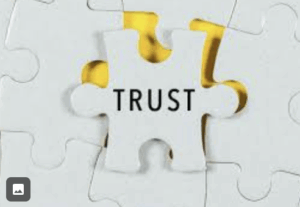Anxiety isn’t just something that affects individuals—it can also show up in relationships in unexpected and painful ways. Whether you’re the one experiencing anxiety or your partner is, it can impact communication, trust, emotional availability, and even intimacy.
At Kingston & Co Counseling, we often work with couples navigating how anxiety influences their connection. The good news? With awareness and the right support, anxiety doesn’t have to control your relationship. Here’s how anxiety can affect your partnership—and what you can do about it.
1. Anxiety Can Create Communication Breakdowns
When anxiety is present, it’s common for one or both partners to misinterpret each other’s tone, words, or behavior. An anxious mind tends to overanalyze, worry about worst-case scenarios, or seek constant reassurance—all of which can strain communication.
You may find yourself asking questions like:
- “Are they mad at me?”
- “Why haven’t they responded yet?”
- “Did I say something wrong?”
Over time, these patterns can lead to misunderstandings and frustration on both sides. In Couples Therapy, we help partners slow down their reactions, communicate more clearly, and understand each other’s needs without judgment.
2. It Can Lead to Control or Avoidance Patterns
Anxiety can manifest in two major relational behaviors: control and avoidance. For some, anxiety may drive the need to control plans, routines, or their partner’s actions as a way to reduce uncertainty. For others, anxiety may lead to emotional withdrawal or avoidance of conflict altogether.
These patterns can create a push-pull dynamic in the relationship that leaves both partners feeling exhausted and disconnected. At Kingston & Co, our therapy services can help individuals explore the root causes of these responses and develop healthier coping tools.
3. Anxiety May Affect Emotional and Physical Intimacy
When you’re overwhelmed by anxious thoughts, it becomes harder to be emotionally present. This can lead to emotional distance or even a decrease in physical intimacy. You might feel “in your head” during conversations or physical closeness, which can lead your partner to feel unimportant or rejected.
This doesn’t mean there’s something wrong with your relationship—it just means anxiety is getting in the way. With support, couples can rebuild intimacy by learning how to stay grounded and emotionally available, even when anxiety is present.
4. It Can Trigger Guilt or Shame
People with anxiety often feel guilty about how their symptoms affect their partner. They might think, “I’m too much,” or “They’d be better off without me.” These beliefs can lead to withdrawing from the relationship or over-apologizing—both of which prevent genuine connection.
Therapy can help challenge these inner narratives and replace guilt with self-compassion. We work with clients to understand their anxiety without judgment and begin creating a healthier relationship with themselves—and their partner.
What You Can Do as a Couple
If anxiety is affecting your relationship, you’re not alone. Here are a few things you can start doing today:
- Name it. Talk openly about how anxiety shows up in your relationship.
- Stay curious. Try to understand how anxiety feels for your partner rather than jumping to assumptions.
- Create safety. Practice nonjudgmental listening and reassurance without enabling anxious behaviors.
- Seek support. Whether through couples therapy or individual therapy, working with a therapist can help both partners grow.
You Deserve a Healthy Relationship—Anxiety and All
Anxiety doesn’t mean your relationship is doomed. With the right tools, it can actually become an opportunity for deeper connection, empathy, and growth.
At Kingston & Co Counseling, our therapists help couples and individuals understand how anxiety shows up in relationships and how to respond in ways that foster connection—not conflict.
Ready to take the next step? Contact us today to learn how we can support you and your relationship.







